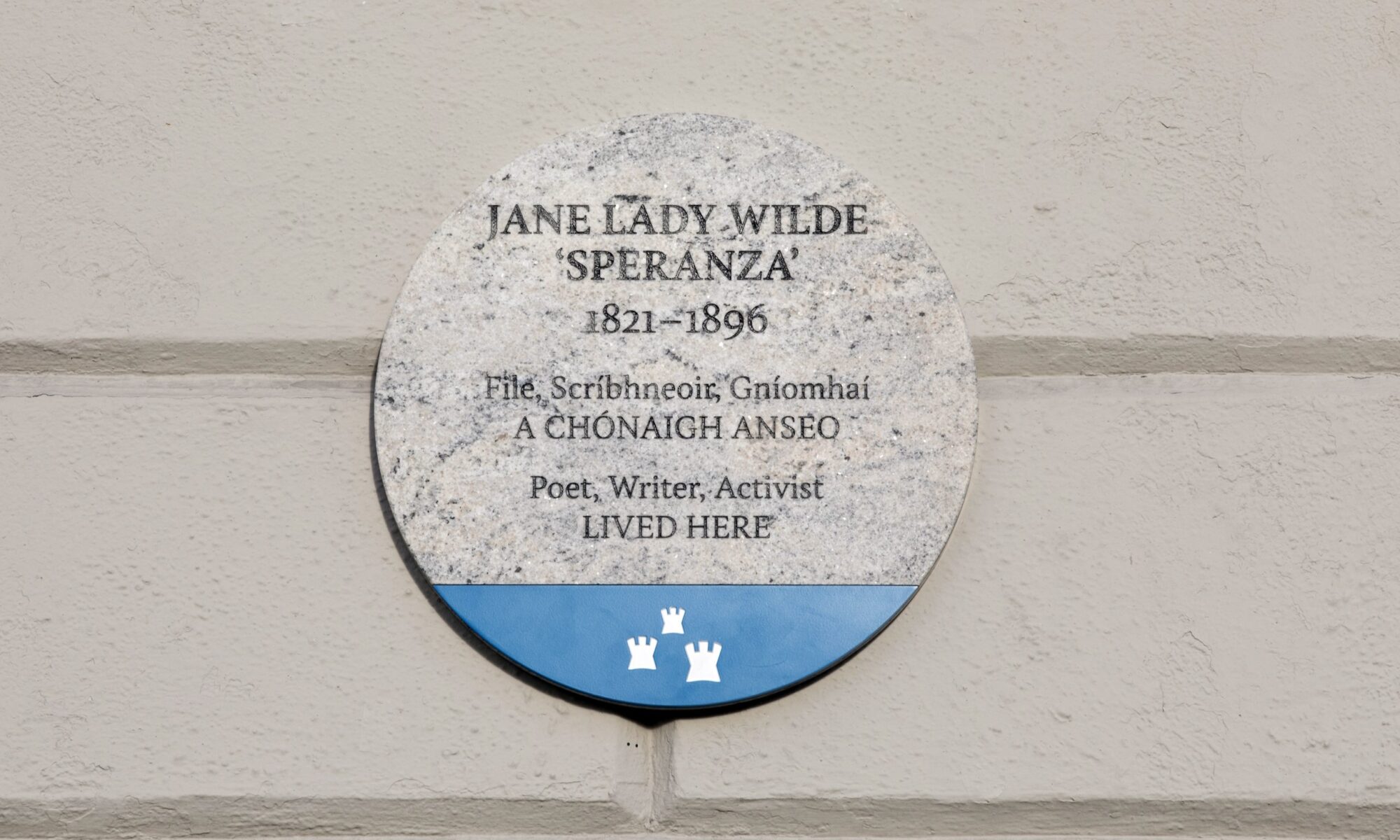This plaque commemorates Jane Wilde, poet, feminist, and nationalist.
Born in 1821, Jane Wilde was a polyglot who translated works from German and French. Inspired by Thomas Davis and the Young Ireland movement, she became a nationalist and from 1846 contributed to their journal The Nation, writing under the pen names Speranza and John Fanshawe Ellis.
Among her poems in the Nation was ‘The Famine Year’, her response to the Great Famine, in which she criticised her own Anglo-Irish landlord class.
In 1848, her piece ‘Jacta Alea Est’ (‘the die is cast’) was seen by the authorities as so inflammatory that it led to the suppression of the Nation.
Living at 1 Merrion Square, Dublin, her weekly literary salons put her at the centre of Dublin’s cultural life. She continued her salons in London, where she lived following the death of her husband, Sir William Wilde, in 1876.
An advocate for women’s rights, she campaigned for greater access to education for women.
The woman of the future will never again be the mere idol of a vain worship, the petted toy of a passing hour; She takes her place now in the world on higher grounds than physical beauty, and will gain nobler triumphs…
Lady Wilde, Social Studies (London, 1893), pp 94-5.
Proposed by the American College Dublin, the plaque joins existing ones which commemorate her husband , Sir William Wilde, and her son, Oscar, on the house where she lived until 1876.
The plaque was unveiled by Lord Mayor Alison Gilliland on 19th November 2021.


